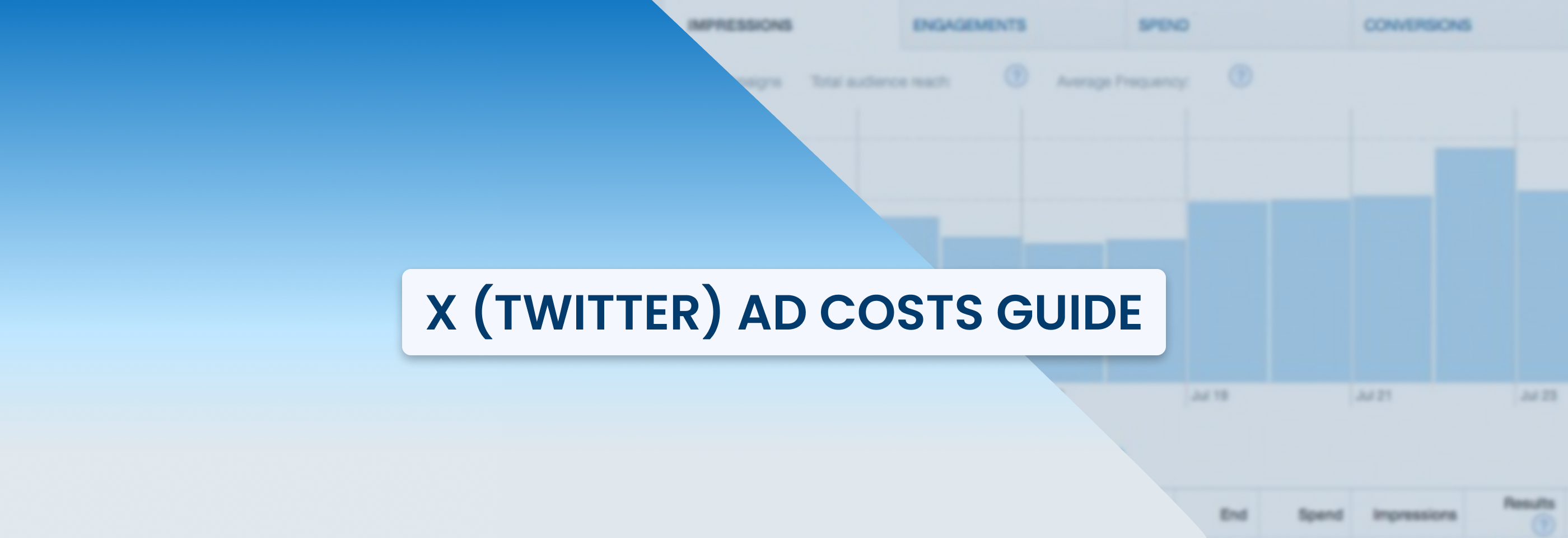Do You Need Marketing Personalization?
2022-03-21

Personalization is now a necessity to survive. Clients we serve now feel financially vulnerable - they are attentive to their purchases. The ease of doing purchases online increased the competition, making consumers impatient and asking for the most personalized advertising.
There is no doubt that change in people’s behavior has affected the business in an unprecedented way and never has the value of personalized advertising been so evident.
At this point, providing your clients with a journey tailored to them is a way to boost loyalty and convert basic clients into consumers and, what’s even more, brand ambassadors.
What personalized advertising is
Personalized advertising is a powerful strategy that improves the relevance of advertising for consumers while also increasing the return on investment for marketers. It can give a better experience for both users and advertisers since it uses online user data to target consumers with more relevant advertising content.
Marketing personalization entails communicating with your audience and customers in a way that feels personal and real, while also taking into account their preferences, likes, and interests. When customers receive transparent ads based on their activity, the revenue of the product grows by around 38%.
Personalization is unquestionably a new trend, but it doesn’t mean that businesses started using personalized marketing just now. Take, for instance, basic retargeting ads or landing page copy - remarkably powerful tools which are actually an example of personalized marketing effectiveness. The thing is, marketers are just no longer building specialized experiences for a group of consumers. So the main point is that personalized marketing today creates a unique experience for each and every consumer.
Well, if you’re still making attempts to reach out to your audience with generic, impersonal content you're missing out on a major opportunity to engage your audience and urge them to stick with you in the long run. Your best bet to win them over is to talk to them directly, with a laser focus on what they prefer and are naturally interested in.
Why personalized marketing is important
Personalization is no longer just a competitive advantage; it's something your customers expect from you at every turn. Companies all over the world report seeing an uplift since implementing personalization. According to the stats, 86% of marketers have seen a measurable lift in business results from their personalization campaigns.
Digital professionals are prioritizing personalization today. According to Forrester, 89% of digital businesses are investing in personalization today. Among them, there are companies like Netflix, Coca-Cola, Sephora, USAA, and Wells Fargo.
And what about consumers? According to a SalesForce survey, 84% of consumers say being treated like a person, not a number, is very important to winning their business. What’s even more, customers are ready and are willing to share their data to create a more personalized experience. It means that clients today fully comprehend that a company’s understanding of their personal needs influences their loyalty.
Here is a quick proof of that: personalized CTAs outperform other CTAs across the board. The HubSpot says personalized calls to action convert 202% better than default or standard CTA.
Brands that invest in personalization efforts to build relationships and deliver better experiences can receive significant benefits.
Companies that do not prioritize developing a personalized experience risk being left behind in a world where the great majority of companies are focused on boosting personalization.
Benefits of personalization
When you personalize your marketing, you send the right message to the right people at the right time. What kind of benefits personalization can bring you:
- Exceptional customer experience
We are more likely to trust someone with our issues if we believe they understand our needs. So do the customers. They are more willing to provide personal information with their favorite brands if they receive a personalized approach.
They fill out forms, download whitepapers, participate in various surveys and specify their favorite products or preferences - it all can be used to create the most personalized customer experience ever. - Increased customer loyalty
Customers feel more connected to a company when they are provided with advertising that is appealing to them. Thus, around 70% of consumers say a company’s understanding of their personal needs influences their loyalty.
Consumers want to be treated as unique individuals with specific choices and preferences when they provide information and data. Businesses that invest time and resources into developing efficient personalized marketing strategies will get a competitive advantage in terms of brand loyalty and consumer satisfaction. - Increase revenue, sales, and conversions
Personalization helps a company to efficiently target existing and prospective consumers, increasing the odds of engagement and conversions by appealing to the individual's likes, needs, interests, and other preferences.
Moreover, companies can improve ROI by identifying and responding to each customer's preferred channel. Marketers can detect which channels the customers are most engaged in with the correct automation technology, and then automatically follow up across channels as part of an omnichannel strategy.
For marketing departments, personalization is a strategy that increases relevance and engagement, which leads to increased trust and sales.
Challenges of personalization
When it comes to personalized marketing, there are also challenges, just as with any other marketing strategy. Let's look at a few of the most prevalent stumbling blocks:
- Gather data without hassling your customers
Although the statistic says that 73% of consumers say a business has never communicated with them online in a way that felt too personalized or invasive, it can be a struggle for businesses not to cross the line. While some customers appreciate it when businesses speak to their interests, they intensely dislike it when marketers come on too strong. For instance, sending a 35-question form for clients to fill out is not a very good idea. - Finding the right technology
One of the most serious issues with personalized marketing is the use of outdated technology that is unsuitable for the new digital era.
Data gathering and automation are crucial components of personalization success, and this necessitates the use of an intelligent algorithm.
Unfortunately, many marketers are having difficulty finding a smart personalization engine that satisfies their requirements. - Allocate enough resources
Companies need staff, funds, and time to establish efficient personalized marketing. Although technology can handle data aggregation, someone still needs to determine what data is important to collect and how to use it. It’s also needed to understand how willing the customers are to provide their data, when to collect it, and when to send personalized messages.
It’s crucial to make sure that you have the resources to plan, implement and track the created personalized marketing strategy.
Ways to personalize your marketing
Nobody said it would be simple. The following factors should be addressed while developing a successful personalized marketing strategy:
- Use customers’ past experience and collect data
Personalization-enabled brands should collect as much data as possible in order to form buyer personas for better content. Checking your clients' history is an excellent technique to figure out what they need. Look for patterns in their prior interactions and transactions with you. Among instruments used to collect customer data we can find traditional analytic tools like Google Analytics. Another way is to use Facebook Audience Insights that can provide essential and detailed information. You can use this data not only to better know your audience but also further retarget different groups of audiences with follow-up ads.
- Generate buyer personas and map out your content
Once brands have enough data, they can segment their audience based on a variety of factors such as:
- age
- gender
- location
- income
- interests
- pain points
- shopping habits (frequency and purchases)
- what incentives they respond to well
- what information they require to make a decision
It is crucial to make a proper decision regarding what characteristics will help you send them messages that truly matter.
Then, marketers must determine what content would be of particular interest to each persona and use, for instance, a diagram to map these interests.
- Create the personalized experience
Actually, today's consumer expects customization in every campaign your company conducts. Here are some basic examples of personalized content:
- Targeted promotional emails
A customized message sent to a specific segment of your mailing list is known as a targeted email. They might be announcements, exclusive offers, giveaways, new products. These emails are extremely personalized, they provide users with relevant offers that add value. One of the good ways to create targeted promotional letters is to group your audience by the stage of the sales funnel they're at.
- Custom video messages
That’s about social media videos that show your name and personalized information that you might’ve included in the profile. It’s an effective way to keep clients engaged, although it might be time-consuming.
- Website pages
Marketers use website customization to provide unique experiences for their consumers that include personalized recommendations, dynamic content, and exclusive offers. The benefits are: increased spent on-page time, better product recommendations, high converting CTAs, and landing pages.
- Product recommendations
This is a way to re-attract existing customers. Just show them product recommendations based on what your clients have already viewed, purchased, or even added to their wish list.
- Transactional communications
These messages have no direct call to action. They include a piece of essential information for clients, like invoices, shipping notifications, receipts, account updates, and password resets. The good thing is that transactional communication can also be personalized, giving opportunities for cross-selling, gathering feedback.
- Targeted discounts, sale alerts and offers, and so on
You can give customers who haven't interacted with you in a while coupons and offers based on their previous purchases. That way you have an ability to re-engage consumers.
Many points in the customer journey offer potential for personalization. It’s not only the content that should be personalized (like emails), it’s the whole experience. This means that various buyer personas are introduced to different content, offers, and even sales messages that have been carefully tailored to appeal to them particularly.
Conclusion
Today customers want to be recognized as individuals and personalized marketing is exactly what businesses need to satisfy their clients. Widespread use of personalization along with its various benefits show that this trend is here to stick. However, personalization is only ever as good as the data that is being collected. For this reason, businesses should work out a proper strategy, centering their efforts around understanding as much as possible about the individual customers and their unique needs.

